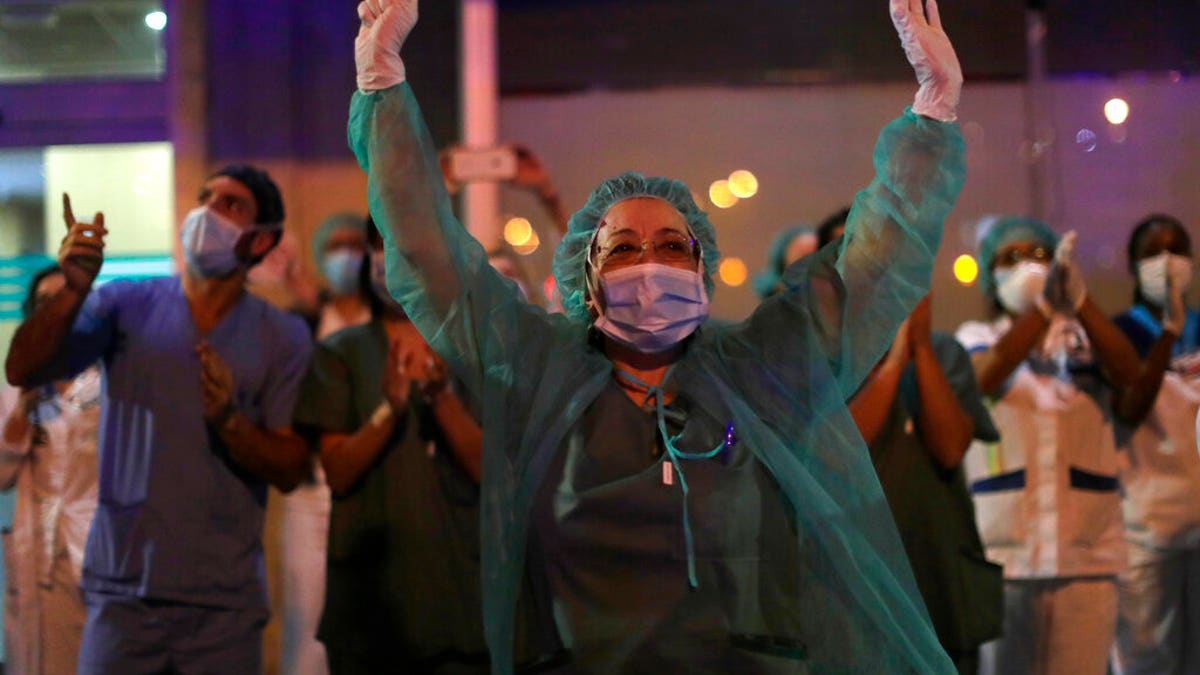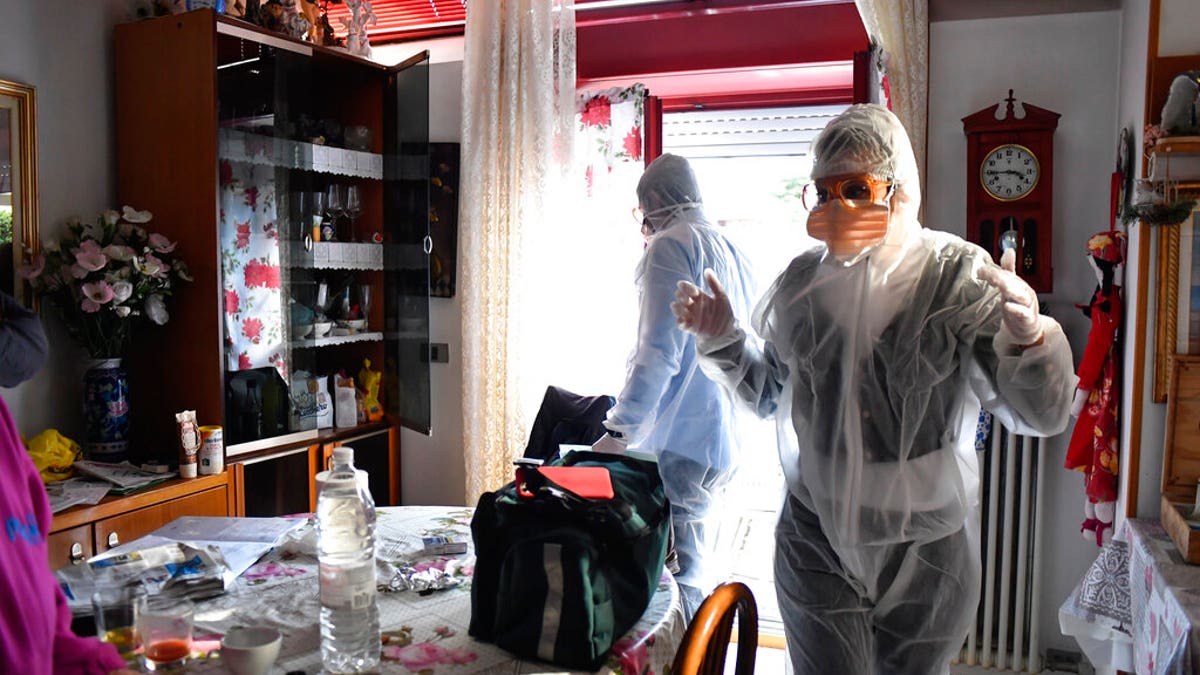Countries around the world scramble to contain coronavirus outbreak
COVID-19 cases rise across the world; Greg Palkot reports.
Get all the latest news on coronavirus and more delivered daily to your inbox. Sign up here.
With Italy and Spain on the frontlines of fighting the coronavirus pandemic, medical workers have drawn attention to both countries' overburdened hospitals, where equipment and tests have been in short supply for weeks.
Spain’s hospitals are straining under the weight of the pandemic: Video and photos from two hospitals in the Spanish capital showed patients, corridors and emergency rooms. At the 12 de Octubre University Hospital, patients could be seen on the floor as they waited for a bed in recent days.

FILE: Health workers react as people applaud from their houses in support of the medical staff that are working on the COVID-19 virus outbreak at the Jimenez Diaz Foundation University hospital in Madrid, Spain. (AP)
On Wednesday, the number of medical personnel infected was nearly 6,500 nationally, health authorities said, representing 13.6 percent of the country's 47,600 total cases and about 1 percent of the health system's workforce. At least three health care workers have died.
"We are collapsing. We need more workers," said Lidia Perera, a nurse who works at Madrid's Hospital de la Paz, which has 1,000 beds.
If you had told me three months ago that I would be working in these conditions in Spain, I wouldn't have believed you.
This week, 11 of the hospital's 14 floors are devoted to caring for those suffering from COVID-19, and there is still not enough room: The patients with less serious cases of the disease are being put in the hospital's gym or in a large tent outside.
"If you had told me three months ago that I would be working in these conditions in Spain, I wouldn't have believed you," Perera said, adding that staff at La Paz are only being tested for the virus if they have symptoms. "If they did [regular testing], they might end up without any workers."
Widespread infections among health workers reflect the universal difficulty of stemming the spread of the pandemic. But sick health workers do double damage: They add to the toll while also hampering the ability to respond to the crisis. On top of that, they raise the specter of hospitals becoming breeding grounds of infection.
In Italy, where nearly one-tenth of more than 74,000 infections are among medical workers, doctors and nurses have been begging the government daily to provide more masks, gloves and goggles.
SPAIN ARRESTS AT LEAST 900 WHO VIOLATED CORONAVIRUS STAY-AT-HOME ORDERS
In addition, 33 doctors have died, according to the Italian federation of doctors, although it was not clear if all were in service at the time.
Spanish authorities have repeatedly said that protecting medical staff is central to their efforts to do what's known as "flattening the curve": spreading out the time period over which infections occur, in order to reduce the burden on intensive care units. But health workers say that even simple things such as gowns and masks are still in short supply, as are tests.
Unions blame budget cuts during the decade that followed the last global economic crisis for leaving Spanish hospitals ill-prepared.

Medical staffers wearing protective gear, part of a special unit performing house calls, work in Bergamo, northern Italy, one of the areas worse-affected by coronavirus, Wednesday, March 25, 2020. (LaPresse via AP)
In response to the criticism, authorities have promised to distribute hundreds of thousands of masks and COVID-19 fast tests this week. On Wednesday, Health Minister Salvador Illa announced a €432 million purchase of Chinese medical material, including 500 million masks, 5.5 million test kits and 950 ventilators.
CLICK HERE TO GET THE FOX NEWS APP
For most people, the new coronavirus causes mild or moderate symptoms that clear up in two to three weeks. But for older adults and people with existing health problems, it can cause more severe illness, including pneumonia and death.
The Associated Press contributed to this report.









































